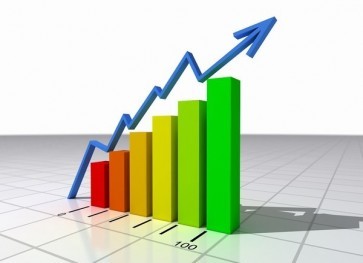GDP GROWTH DATA FOR Q2 2011 REVISED UPWARDS
The National Statistical Institute (NSI) has revised upwards the data for GDP growth in the second quarter of 2011 to 2%, vs its previous estimates for a 1.9% growth. Seasons adjusted statistics showed that in April-June GDP grew by 0.3% from Q1 2011.
In Q2 2011, Bulgaria generated GDP worth BGN 18.8 bn at current prices (€9.614 bn), or BGN 2,511.6 per capita. The gross added value of our economy stood at BGN 16.29 bn. The relative share of the industrial sector rose by 2.3% in Q2011, compared to the same period of last year and reached 33.4%. The share of value added generated in the sector of services was 60.8%, or 3.4% lower than in the Q1 2010. Meanwhile, the relative share of agriculture in the value added of the economy increase by 1.1% and reached 5.8%.
Some 70.1% of the GDP produced in Q2 2011 went for individual consumption of the population. Investments accounted for 21.1% of GDP, showed NSI data. The foreign-trade balance of goods and services registered a deficit of BGN 414 mln and accounted for 2.2% of GDP. Exports of goods and services decreased by 1.3% in the second quarter of the year, while imports increased by 0.8%, compared to Q1 2011. In the first three months of the year, Bulgaria's economic growth was 0.6%.
The NSI also reported that GDP per person employed increased by 6% in Q2 2011, compared to the same period of 2010, while the number of employed people decreased by 3.5%.
Some days ago, Deputy PM and Finance Minister Simeon Djankov predicted a possible wage increase in the first half of next year, but declined further details, lest his words be taken as a pre-election populist move. Djankov explained that the budget deficit would be below 2% and perhaps even below 1% next year, while economic growth would be around 4%. According to him, the collection of revenues is going on well this year and they are some 14% above these of 2010, while expenditures are about 6% lower. The 2012 budget will be better than the previous two, predicted Djankov. He was adamant that Bulgaria would not undergo a period of depression, that our economy was developing well and would be delayed only if that of the EU was delayed. If something should be done for private businesses, these would be active policies in terms of infrastructure and better benefits in certain sectors, Djankov commented. He pointed out that there would be no 'tax recess' for private businesses because taxes in Bulgaria were among the lowest in Europe.






